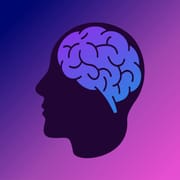The Future of Focus: A Sound-Driven Approach
Sound-based applications are increasingly recognized for their potential to enhance focus, relaxation, and cognitive performance. This review explores the "Binaural Beats - study music" app, examining its current features and projecting its evolutionary path within the broader landscape of digital wellness.
Harmonizing Present Capabilities with Emerging Trends
The app leverages binaural beats, a well-researched auditory phenomenon, to influence brainwave activity. Currently, it offers a library of soundscapes designed for various mental states like studying, relaxing, or meditating. The core concept aligns with the growing trend of personalized neuroacoustic therapy, where customized sound profiles are used to achieve specific cognitive or emotional outcomes.
- Innovation Indicator: The app's reliance on scientifically backed principles positions it favorably within the burgeoning field of digital therapeutics.
- Trend Alignment: The increasing popularity of mindfulness and meditation apps indicates a receptive audience for sound-based cognitive enhancement tools.
Technological Implications: From Static Soundscapes to Adaptive Audio
While the current app likely offers pre-set binaural beat frequencies and ambient sounds, the future holds potential for adaptive audio. Imagine an AI-powered system that analyzes a user's real-time brainwave activity (via EEG integration, perhaps through future wearable tech) and dynamically adjusts the binaural beats to optimize focus or relaxation. Such closed-loop systems could dramatically improve the efficacy and personalization of sound therapy.
Adaptive Audio Personalization
Future versions may integrate biosensors for real-time feedback, enabling the dynamic adjustment of soundscapes based on the user's current mental state. This could involve partnerships with wearable tech companies or the development of proprietary sensor technology.
User Experience Evolution: Beyond Passive Listening
The user experience could evolve from passive listening to interactive engagement. Gamification elements could be introduced, where users complete tasks requiring focus while the app monitors and optimizes their cognitive state. This could transform the app from a background tool to an active training platform for attention and concentration.
- Potential Development: Integration of biofeedback games that challenge users to maintain focus while receiving auditory cues.
- Future-Ready Features: Gamified progress tracking, rewards for achieving focus milestones, and social features for comparing performance with others.
Transformative Potential: A Symphony of the Mind
The ultimate potential lies in transforming our relationship with focus and cognitive control. By providing accessible and personalized sound-based tools, apps like this could empower individuals to proactively manage their mental states, reducing stress, improving productivity, and fostering a deeper sense of well-being. The future might see integration with other health and productivity apps, creating a holistic ecosystem for cognitive enhancement. However, data privacy and the ethical implications of manipulating brainwave activity must be carefully considered as the technology evolves.




